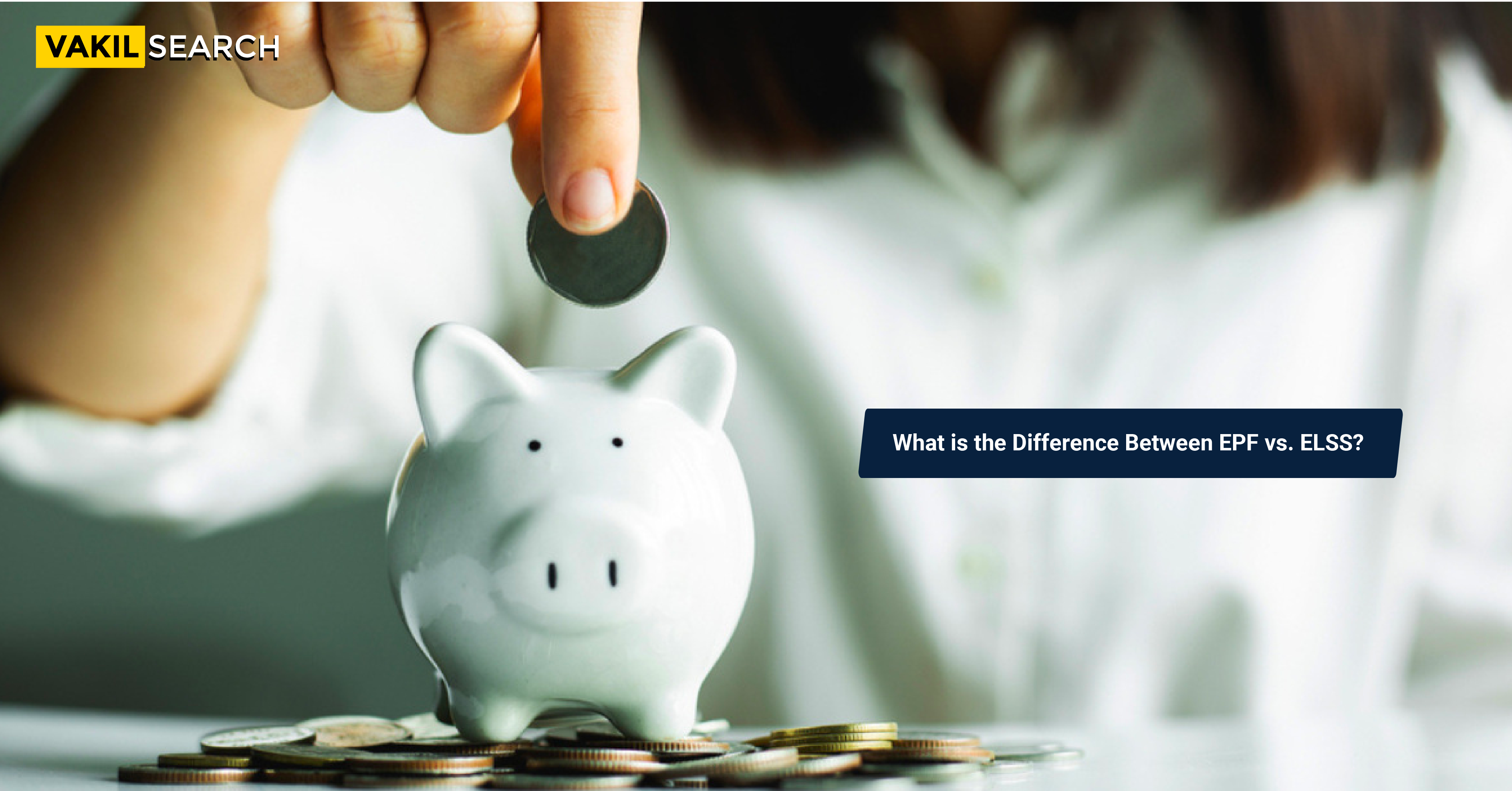Dive into the distinctions between EPF and ELSS investment options in India. Understand their unique features and benefits for smarter financial planning.
Overview
When it comes to building a robust financial portfolio, Indians have a plethora of investment options at their disposal. Among these EPF vs. ELSS, the Employees’ Provident Fund (EPF) and Equity-Linked Savings Scheme (ELSS) are two prominent choices. While both aim to help you grow your wealth, they serve different purposes and come with distinct features.
In this comprehensive guide, we’ll unravel the differences between EPF and ELSS, empowering you to make informed investment decisions.
EPF: A Safety Net for Retirement
What is EPF?
The Employees’ Provident Fund (EPF) is a government-backed retirement savings scheme designed to provide financial security to employees during their post-retirement years.
How Does EPF Work?
- Employees and employers contribute a fixed percentage of the employee’s salary to the EPF account.
- The contributions accumulate over time, earning interest, and the final corpus is accessible upon retirement or certain specified conditions.
Key Features of EPF:
- Tax benefits under Section 80C.
- Maturity age: 55 years.
- Partial withdrawals allowed for specific life events like buying a house or medical emergencies.
- Tax-free interest earnings.
ELSS: Tax-Efficient Wealth Accumulation
What is ELSS?
Equity-Linked Savings Scheme (ELSS) is a type of mutual fund that primarily invests in equities and offers tax benefits under Section 80C of the Income Tax Act.
How Does ELSS Work?
ELSS funds invest in a diversified portfolio of equities, aiming for capital appreciation.
The lock-in period for ELSS investments is three years, which is shorter than most other tax-saving options.
Key Features of ELSS:
- Tax benefits under Section 80C for investments up to Rs. 1.5 lakh per annum
- Short lock-in period of three years.
- Potential for higher returns due to equity exposure.
- No tax on long-term capital gains.
EPF v. ELSS
EPF (Employee Provident Fund) and ELSS (Equity Linked Saving Scheme) are two popular investment options in India. Both of these investment options have their own advantages and disadvantages.
Here is a checklist to help you decide which one is better for you:
Features of EPF:
- EPF is a government-backed retirement savings scheme that is mandatory for all salaried employees in India.
- The contribution to EPF is made by both the employee and the employer. The employee contributes 12% of their basic salary and the employer contributes an equal amount.
- The interest rate on EPF is fixed by the government and is currently at 8.5% per annum.
- EPF offers tax benefits under Section 80C of the Income Tax Act, 1961. The contribution made by the employee is eligible for tax deduction up to Rs. 1.5 lakh per annum.
- EPF has a lock-in period of 5 years, which means the funds cannot be withdrawn before the completion of 5 years.
Features of ELSS:
- ELSS is a type of mutual fund that invests primarily in equity and equity-related instruments.
- ELSS offers tax benefits under Section 80C of the Income Tax Act, 1961. The investment made in ELSS is eligible for tax deduction up to Rs. 1.5 lakh per annum.
- ELSS has a lock-in period of 3 years, which means the funds cannot be withdrawn before the completion of 3 years.
- The returns on ELSS are market-linked and are not fixed. The returns can be higher or lower depending on the market conditions.
- ELSS has the potential to offer higher returns compared to EPF, but it also comes with higher risk.
How to Decide Between EPF and ELSS?
Based on the above checklist, here are some factors to consider when deciding between EPF and ELSS:
- EPF is a mandatory retirement savings scheme for salaried employees, while ELSS is a voluntary investment option.
- EPF offers a fixed interest rate, while ELSS offers market-linked returns.
- EPF has a longer lock-in period of 5 years, while ELSS has a lock-in period of 3 years.
- Both EPF and ELSS offer tax benefits under Section 80C of the Income Tax Act, of 1961.
- ELSS has the potential to offer higher returns compared to EPF, but it also comes with higher risk.
The Bottom Line
In conclusion, EPF is a safe and secure retirement savings option with a fixed interest rate, while ELSS is a market-linked investment option with the potential for higher returns but also higher risk. The choice between EPF and ELSS ultimately depends on your investment goals, risk appetite, and financial situation.
It is always advisable to consult a financial advisor before making any investment decisions. For tax-proofing your investments in the most efficient manner possible, get in touch with the experts at Vakilsearch right away!
FAQs (Frequently Asked Questions)
Can I invest in both EPF and ELSS simultaneously?
Yes, you can invest in both EPF and ELSS as they serve different financial goals. EPF is a mandatory retirement savings scheme, while ELSS offers tax benefits and potential wealth accumulation.
What is the ideal investment duration for ELSS?
ELSS investments come with a three-year lock-in period. However, for optimal returns, consider staying invested for a more extended period, preferably five to seven years or more.
Which option is better for tax-saving, EPF, or ELSS?
Both EPF and ELSS offer tax benefits under Section 80C. The choice depends on your financial goals. EPF primarily serves retirement planning, while ELSS combines tax savings with the potential for higher returns.
Read more:-
- How to fill form 15h for pf withdrawal?
- Claim the final settlement using PF Withdrawal Form 19
- How to update PF nominee on EPFO portal?

